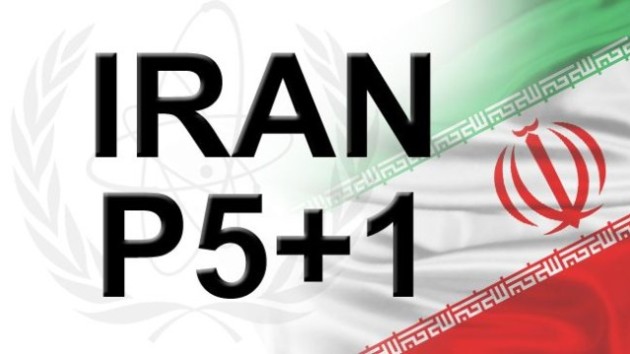Iran: Decision Time For Democrats
The British media traditionally refers to the month of August as ‘silly season’, but apart from the blanket coverage of the sad fate of Cecil the lion, this silly season has been notable for being remarkably un-silly. Received wisdom has it that with Parliament away there are no political stories for the media to report on. But nothing could be further from the truth this year.
The migrant crisis in the Mediterranean and stretching to Calais shows no sign of letting up just because MPs are in their constituencies or on their holidays. And nor are the stories of the continuously emerging awfulness of the Iran deal slowing just because Parliament is not in session. The fact – not very surprising – is that politics goes on all the time as usual, whether Parliament is in session or not.
It must be hoped, however, that the break does some good to our political class. Standing back from the day-to-day running of Westminster can provide an opportunity to survey the real political landscape rather than getting bogged down in the procedural issues which take up so much of any politician’s day. Watching the ongoing political fight in Washington is a reminder of this.
At the time of writing a number of very significant leading Democrats look like they are going to come out against their own President’s deal with Iran. In doing so it is perfectly possible that they are performing career hara-kiri. It seems inevitable that whether Congress votes against the deal or not the President, and those around him, are unlikely to forgive or do much to support the future of those who have voted against them. Chicago politics can work just as easily in Washington.
But the Democrats in particular who choose to vote against the deal are doing so for an extraordinary and admirable reason: they are willing to put their concern for the future of their country and the future of the world ahead of concerns over the future of their careers. It is not too cynical to say that this order of priorities is not always present in politics. But this is an important moment. Even if the President gets his way with the deal, the rebellion of a large enough number of members of his own party could still succeed in signalling just what a mistake America and her allies are making.
New stories have emerged this week of the Iranian regime’s genocidal rhetoric against America and her allies. Perhaps people are so used to this that it has become background noise. But this background noise is going on whilst in the foreground the same regime is getting the biggest financial, diplomatic and military boost it could possibly ever have. If you stand back from everything else that is going on this is the big story. What would be silly would be not to recognise that.

FROM THE DIRECTOR’S DESK
It is 70 years since the detonation of an atomic bomb at Hiroshima introduced the world to a terrifying new form of warfare in the form of nuclear weapons. Since that time much effort has been expended by nations seeking to obtain this technology, with Iran being but the latest example. Concurrently, equal attempts have been made to ensure further proliferation does not occur.
In recent weeks, I have spent a fair bit of time defending Britain’s own nuclear arsenal in the face of assaults from those who would wish to see us give up our independent nuclear deterrent when the time comes shortly to replace our ageing Trident capability. While no reasonable person could be against the idea of controlled multilateral disarmament – and great strides have been made in this direction since the peaking of nuclear arsenals in the 1980s – unilateral disarmament is quite a different prospect. It would strip the UK of the ultimate deterrent at a time of increasing, rather than decreasing, global instability, with any number of major threats on the horizon. Which British Prime Minister could credibly give up our nuclear weapons at a time when Mr Putin menaces Europe’s and NATO’s eastern borders, and the Middle East is at its most uncertain point in a century, for example?
I rather fear that the goal of ‘Global Zero’ – the push to physically eliminate nuclear weapons or to put them beyond possible use – is also doomed to failure. While noble in intent, the obvious flaw in this approach is that you cannot uninvent technology that has been invented and that as a consequence, the temptation to cheat and keep a small stockpile is just too great. Would we really trust Russia and China to give up all their weapons if we did, let alone Pakistan and North Korea?
Unfortunate as it may be, nuclear weapons are here to stay. The challenge remains to regulate their numbers, avoid their use and prevent dangerous states like Iran from acquiring them.
Dr Alan Mendoza is Executive Director of The Henry Jackson Society
Follow Alan on Twitter: @AlanMendoza



Leave a Reply
Want to join the discussion?Feel free to contribute!